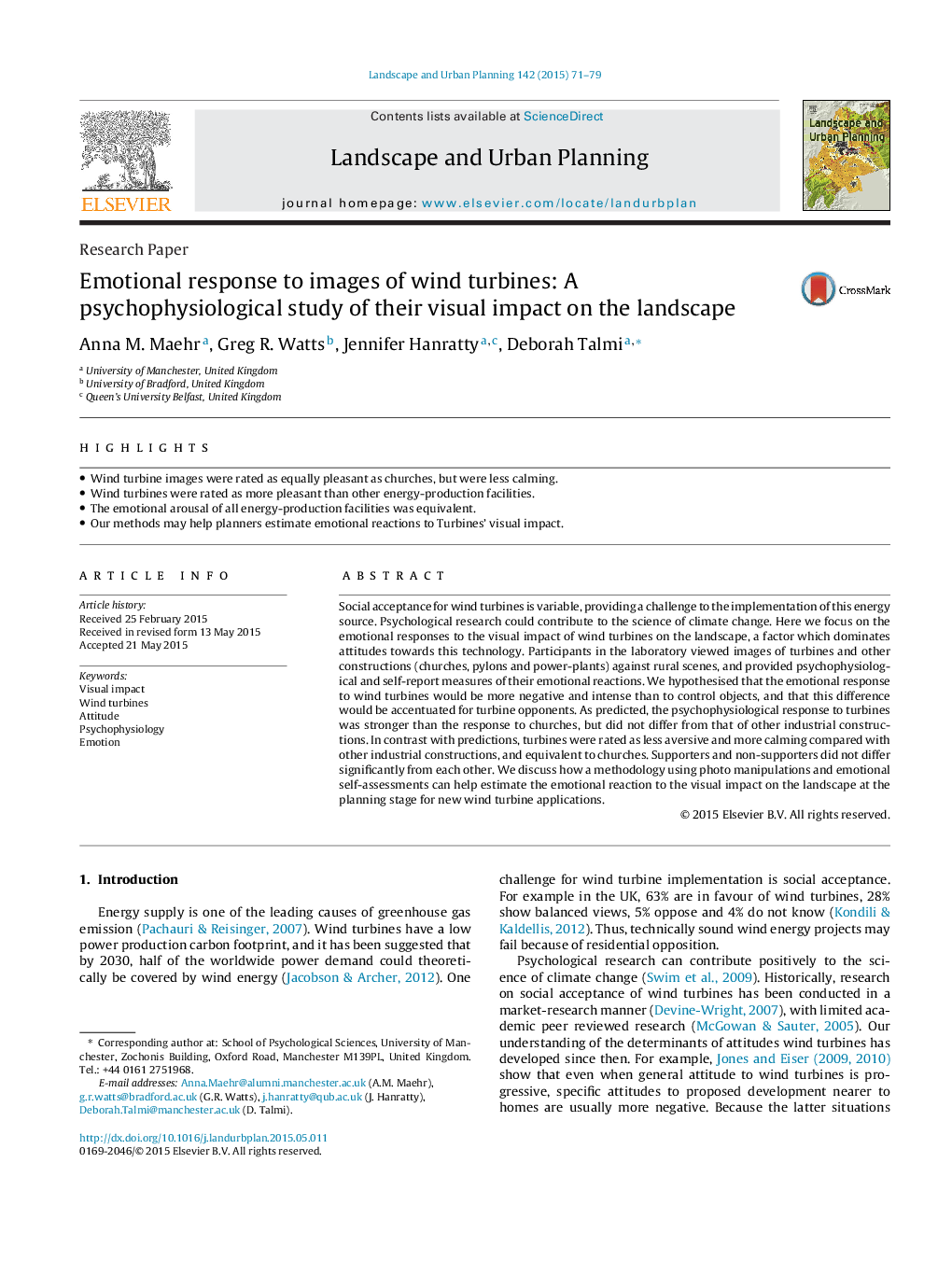| Article ID | Journal | Published Year | Pages | File Type |
|---|---|---|---|---|
| 7461034 | Landscape and Urban Planning | 2015 | 9 Pages |
Abstract
Social acceptance for wind turbines is variable, providing a challenge to the implementation of this energy source. Psychological research could contribute to the science of climate change. Here we focus on the emotional responses to the visual impact of wind turbines on the landscape, a factor which dominates attitudes towards this technology. Participants in the laboratory viewed images of turbines and other constructions (churches, pylons and power-plants) against rural scenes, and provided psychophysiological and self-report measures of their emotional reactions. We hypothesised that the emotional response to wind turbines would be more negative and intense than to control objects, and that this difference would be accentuated for turbine opponents. As predicted, the psychophysiological response to turbines was stronger than the response to churches, but did not differ from that of other industrial constructions. In contrast with predictions, turbines were rated as less aversive and more calming compared with other industrial constructions, and equivalent to churches. Supporters and non-supporters did not differ significantly from each other. We discuss how a methodology using photo manipulations and emotional self-assessments can help estimate the emotional reaction to the visual impact on the landscape at the planning stage for new wind turbine applications.
Related Topics
Life Sciences
Agricultural and Biological Sciences
Ecology, Evolution, Behavior and Systematics
Authors
Anna M. Maehr, Greg R. Watts, Jennifer Hanratty, Deborah Talmi,
